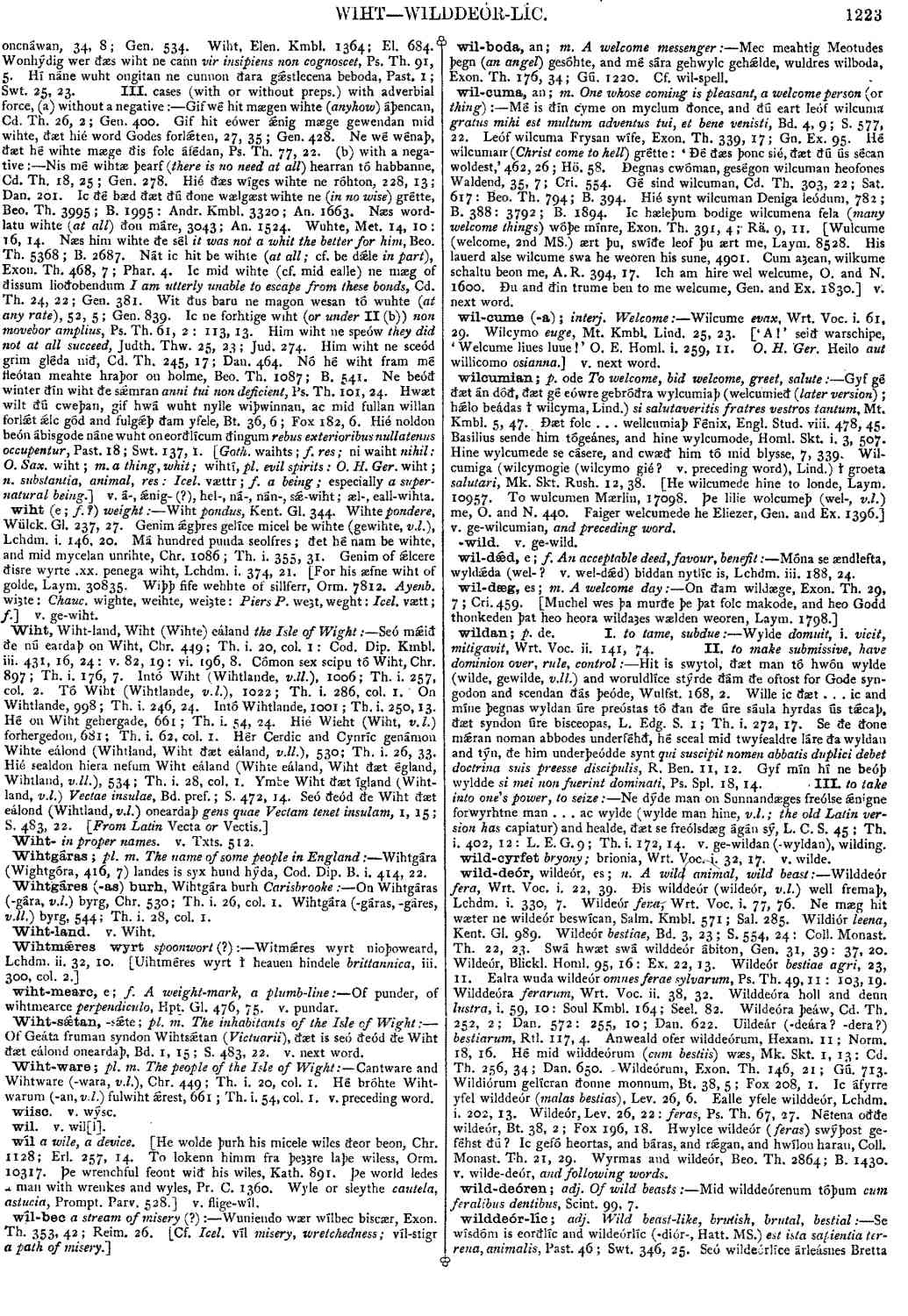wil-cuma
- noun [ masculine ]
-
Mé is ðín cyme on myclum ðonce, and ðú eart leóf wilcuna
grains mihi est multum adventus tui, et bene venisti
,- Bd. 4, 9; S. 577, 22.
-
Leóf wilcuma Frysan wífe,
- Exon. Th. 339, 17; Gn. Ex. 95.
-
Hé wilcuman (
Christ come to hell
) grétte : ‘ Ðé ðæs þonc sié, ðæt ðú ús sécan woldest, '- 462, 26; Hö. 58.
-
Ðegnas cwóman, geségon wilcuman heofones Waldend,
- 35, 7; Cri. 554.
-
Gé sind wilcuman. Cd. Th. 303,
- 22; Sat. 617 : Beo. Th. 794; B. 394.
- Hié synt wilcuman Deniga leódum, 782 ; B. 388: 3792; B. 1894.
-
Ic hæleþum bodige wilcumena fela (
many welcome things
) wóþe mínre,- Exon. Th. 391, 4 ; Rä. 9, II.
Bosworth, Joseph. “wil-cuma.” In An Anglo-Saxon Dictionary Online, edited by Thomas Northcote Toller, Christ Sean, and Ondřej Tichy. Prague: Faculty of Arts, Charles University, 2014. https://bosworthtoller.com/35721.
Checked: 0